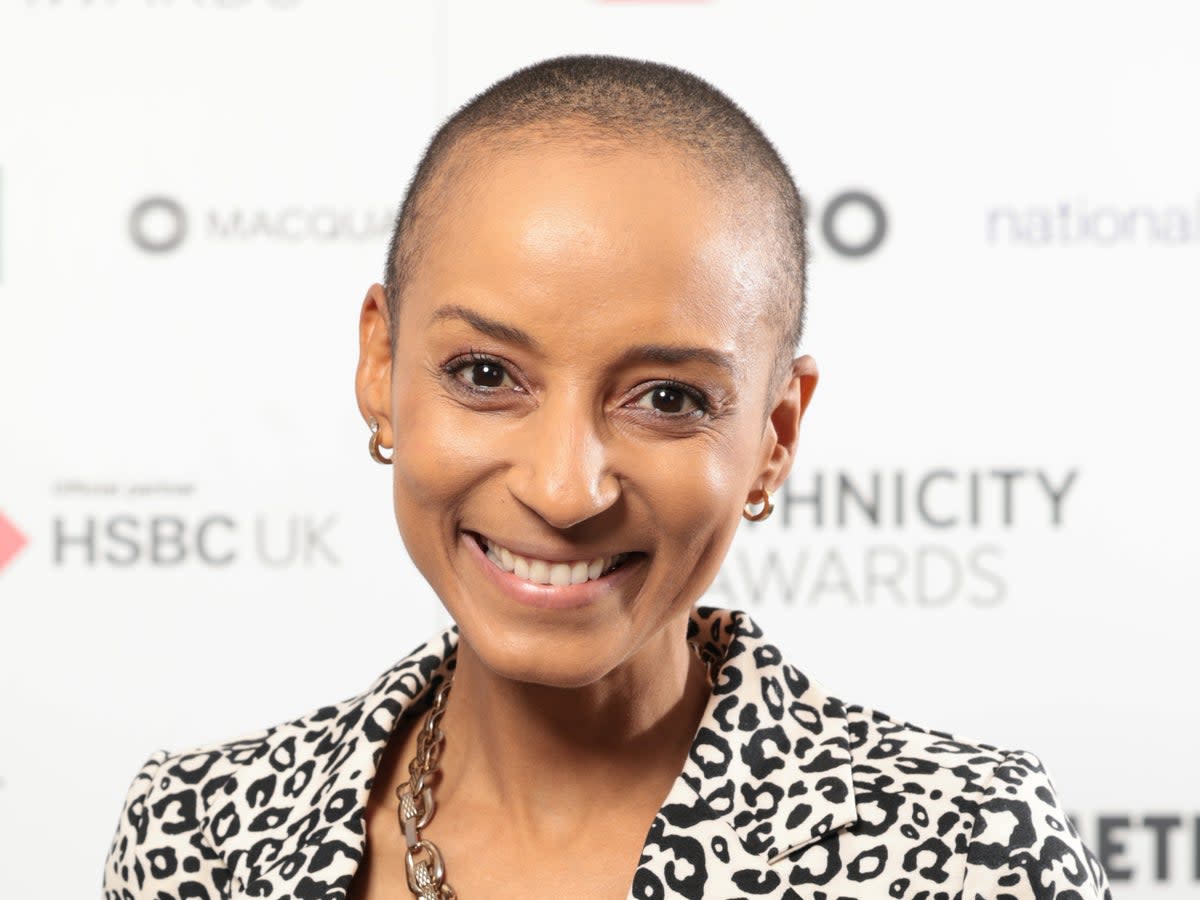Adele Roberts highlights importance of early bowel cancer detection: ‘It helped save my life’

Adele Roberts is fronting a campaign to raise awareness of the symptoms of bowel cancer and emphasised the importance of early detection.
The BBC Radio 1 DJ was diagnosed with stage two bowel cancer in October 2021 and has since shared her journey through treatment with fans on social media.
Roberts, 44, partnered with charity Bowel Cancer UK, which recently released findings from its latest YouGov survey showing that nearly four in ten (38 per cent) people can’t name a single symptom of the disease.
The poll also found that near three-quarters of people (71 per cent) aren’t aware that bowel cancer is the UK’s second biggest cancer killer.
Speaking about her own experience, Robert said: “It took me a while to pluck up the courage to call my GP at first. My symptoms seemed like things I could explain away. I didn’t want to be a burden to the NHS and I was embarrassed.
“I shouldn’t have worried. My GP took my concerns seriously, put me at ease and also offered me a home testing kit. This meant I was able to do the test in the comfort of my own home.
“Soon after I was diagnosed with stage two bowel cancer, which was very nearly developing into stage three. Getting the help I needed in time helped save my life. If you’re worried, please speak to someone, early detection saves lives and it helped save mine.”
The five bowel cancer symptoms that Bowel Cancer UK are urging people to know include blood in the stool, a change of bowel habits, pain or a lump in the stomach, weight loss, and fatigue.
The charity calls these “red flag” symptoms and warns that six in 10 people (59 per cent) across the UK said if they experienced a change in bowel habits, such as diarrhoea or constipation that didn’t clear up, or saw blood in their stool, something would stop them from going to their doctor.
Among these people, 36 per cent cited difficulties in getting an appointment as a reason not to go, 13 per cent said they were too embarrassed, and a further 13 per cent said they were too afraid it could be something serious.
Professor Peter Johnson, national clinical director for cancer, said: “As with all cancers, acting at the first sign of symptoms can make a big difference to how bowel cancer can be treated and how successfully.
“You are much more likely to survive a cancer that is diagnose early, which is why the NHS and charities like Bowel Cancer UK have run awareness campaigns about the signs to look for.”
He continued: “Referrals for bowel cancer tests have been at record levels for the past 18 months and we would encourage people to speak to a GP about any concerning symptoms: knowing what is normal for you and acting when something isn’t right can make all the difference.”
In February, the NHS launched a campaign urging millions in England who have been sent a home testing kit for bowel cancer to use it and return it.
Half a million free Faecal Immunichemical Test (FIT) kits are posted out to those who are eligible each month, but data showed that a third of people are not returning them.
The campaign has been backed by the late Dame Deborah James’ husband Sebastian Bowen, who is continuing her work on raising awareness of bowel cancer after she died of the disease in June 2022.


